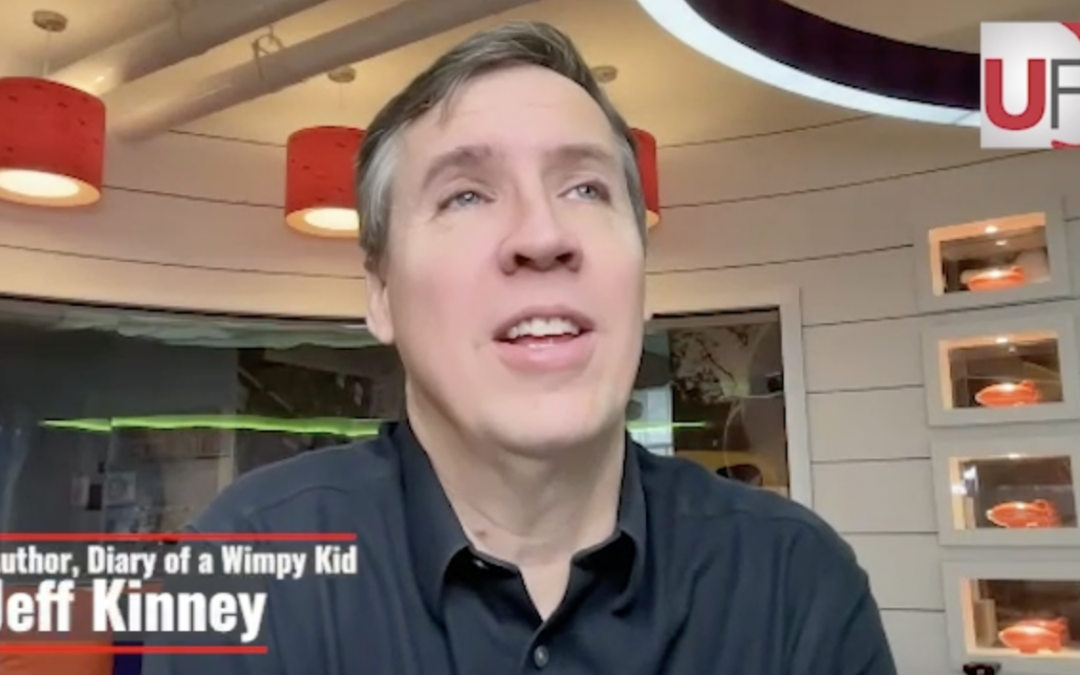No Results Found
The page you requested could not be found. Try refining your search, or use the navigation above to locate the post.


When we are in times of transition, it can be easy to fall into fear. Many of us do not like change. We would rather be settled and know the ground we stand on. We like our second year at the new company. Our junior year of school. Year two of our relationship. When our organization or project is fully funded. Many of us thrive when we feel we’re on a firm foundation, and we’re nervous when we are launching into the unknown. Yet many of us find ourselves at a crossroads and long for clarity about how to move forward.
In Matthew 14:22, we read about the disciples in transition as they launched across the Sea of Galilee once again, headed from one miracle with Jesus to another. They had learned that whenever Jesus showed up in a new town, He created a stir. His presence led to crowds ready to run him out of town, plead with him for healing, press to hear him teach, or follow Him in curiosity.

But things felt uncertain on the sea that day. The Sea of Galilee was not an unfamiliar place–some of them were fishermen, and all of them lived near the sea their entire lives. The feelings of difficulty didn’t come with the place, but from the circumstances. The last time they were on the sea together, a storm almost destroyed their ship, but Jesus was there to save them. But this time they were back on the Sea of Galilee, sailing late at night without Jesus. His absence meant that anything could happen. They found their peace in His presence. Without Him, they felt a little more uneasy about everything. They knew where they were going and where they were coming from. But they were in transition without the presence of the Lord.
And then they saw a figure walking across the lake. They became terrified, and their place of transition became a place of fear. A figure out on the water with no boat walking above the waves was not a pleasant sight–it looked like a ghost. They had every reason to be afraid. We can relate to their fear of the unexpected showing up in the midst of the unknown.
Then Jesus called out to them, and they understood that what they were seeing was not a ghost. It was the Lord. In the space between the last and the next, God showed up for them in an unexpected way. Their place of uncertainty became a place of the miraculous.
Similarly, God is able to show up for us in unexpected ways when our circumstances change. It may look like we are alone as we move to new cities, start new jobs, or find new relationships. The water can seem unstable beneath us as it flows without clarity, especially when the night surrounds us. But if we remember that God is with us always and can meet us right where we are, we may find ourselves walking on the water with Jesus on the way to our destinations.


People worldwide make New Year’s resolutions every year in an attempt to improve their lives. Common resolutions are to exercise more, eat healthier, save money, lose weight and reduce stress.
Yet, 80% of people agree that most people won’t stick to their resolutions. This pessimism is somewhat justified. Only 4% of people report following through on all of the resolutions they personally set.
We have spent years studying motivation, emotion regulation and behavior in family relationships, athletic performance and health information processing in the marketplace. Now at USC’s Performance Science Institute, we help people attain and sustain high performance in all aspects of their lives.
Based on our research, we propose a potential solution to the problem of New Year’s resolutions that people can’t keep: encouraging people to reframe their resolutions to emphasize purpose-based performance.
What leads to so many abandoned New Year’s resolutions?
A large body of research on goal-setting and habits provides insight into the various reasons for failed resolutions.
Many people are not framing their resolutions in ways that will motivate them over time. For example, “exercise more” is a fairly clear directive, but it lacks depth and personal meaning that could help promote follow through. Overly simplified resolutions, such as “exercise more” and “eat healthier” contribute to the ongoing problem that emerges as early as mid-January each year: unintentional neglect of important self-improvement goals.

Purpose has been defined simply as someone’s reason for doing something. However, scientists have recently developed a more comprehensive framework for purpose.
Purpose is associated with positive outcomes for people of all ages. People with a sense of purpose make more money, cope with life hardships more effectively and are healthier across the lifespan. Organizations that foster or reinforce employees’ sense of purpose are now referred to as “high performance workplaces”.
In the context of goal-setting for the new year, the concept of purpose-based performance becomes especially relevant. In our research, we have found that purpose-based performance is much healthier and more sustainable than outcome-driven performance.
Purpose-based performance has three critical, interrelated components: goal orientation, personal meaning and focus on something or someone beyond the self. We provide three questions that you can ask yourself when developing New Year’s resolutions to inspire purpose-based performance.
The first thing to consider is your long-term goals, and how each resolution fits with those goals. Purpose-based performance includes goal orientation, or an internal compass that directs people toward some long-term aim. This orientation helps people organize and prioritize more immediate actions to make progress toward that aim. People who are goal-oriented and remind themselves of their “end game” live consistently with their beliefs and values and perform better on the immediate goals they set.
When setting New Year’s resolutions, many people end up with a long list of simple resolutions without thinking deeply about their rationale for each resolution, or where each resolution will take them. Linking an immediate goal with a longer-term aim can sustain progress. Thinking about who you want to become can help you decide which resolution(s) to take on.
The next step to consider is why each resolution is personally meaningful for you. When people pursue personally meaningful goals, they are not only more intrinsically motivated but also find more joy in the process of goal pursuit. They are able to reframe challenges as opportunities for personal growth. In one study with elite athletes, we found that personal meaning helped them regulate their emotions when things didn’t go their way and display more patience as they pursued their goals.
Someone who pursues a goal for external rewards that are contingent on a particular end result – for example, validation that comes from winning – is likely to experience shame when they fall short of their goal. Even when they win, they may feel disappointed because the end result does not bring meaning to their life. This is exemplified by the “post-Olympic blues,” when Olympians experience depression after such a significant accomplishment.
Spend time thinking about your motivation for each resolution. Ask yourself, are you focused on a particular outcome because it will give you self-esteem, status or something else? It can be helpful to think about the potential meaning found in the process of pursuing a goal, regardless of whether you attain the desired outcome.
The final step is to consider who or what, beyond yourself, will be positively affected by your resolution(s). Desire to be a part of something greater than the self, or transcendent motivation, is beneficial for performance for several reasons.

Linking a resolution to transcendent motivation can be a powerful source of inspiration. Someone may link exercise goals to a charitable cause they care about, or they may think about how improving their health will make them a better partner, friend or parent. Research shows transcendent motivation improves self-regulation when things get dull or repetitive during goal pursuit, and it strengthens character virtues like patience and generosity. When someone’s transcendent motivation is prosocial in nature, they are willing to accept feedback about performance and receive increased social support in the workplace.
Think about the bigger picture. Consider whom you are helping with each goal. Potential impact beyond yourself is added fuel for your goal pursuit.
What might New Year’s resolutions that incorporate purpose-based performance look like? Using the three questions above, we have reworked three common resolutions to reflect purpose-based performance:
Cheers to a new, purpose-filled year!
[ Deep knowledge, daily. Sign up for The Conversation’s newsletter. ]![]()
Benjamin Houltberg, Research Director, Performance Science Institute, University of Southern California and Arianna Uhalde, Assistant Professor of Clinical Marketing, University of Southern California
This article is republished from The Conversation under a Creative Commons license. Read the original article.

Video, courtesy of TIME
In celebration of Martin Luther King, Jr., we’ve compiled several of the stories we’ve published over the years about his life and ministry.
The page you requested could not be found. Try refining your search, or use the navigation above to locate the post.

18 Yet what we suffer now is nothing compared to the glory he will reveal to us later. 19 For all creation is waiting eagerly for that future day when God will reveal who his children really are. 20 Against its will, all creation was subjected to God’s curse. But with eager hope, 21 the creation looks forward to the day when it will join God’s children in glorious freedom from death and decay. 22 For we know that all creation has been groaning as in the pains of childbirth right up to the present time. 23 And we believers also groan, even though we have the Holy Spirit within us as a foretaste of future glory, for we long for our bodies to be released from sin and suffering. We, too, wait with eager hope for the day when God will give us our full rights as his adopted children,[a] including the new bodies he has promised us. 24 We were given this hope when we were saved. (If we already have something, we don’t need to hope[b] for it. 25 But if we look forward to something we don’t yet have, we must wait patiently and confidently.)
26 And the Holy Spirit helps us in our weakness. For example, we don’t know what God wants us to pray for. But the Holy Spirit prays for us with groanings that cannot be expressed in words. 27 And the Father who knows all hearts knows what the Spirit is saying, for the Spirit pleads for us believers[c] in harmony with God’s own will. 28 And we know that God causes everything to work together[d] for the good of those who love God and are called according to his purpose for them. 29 For God knew his people in advance, and he chose them to become like his Son, so that his Son would be the firstborn[e] among many brothers and sisters. 30 And having chosen them, he called them to come to him. And having called them, he gave them right standing with himself. And having given them right standing, he gave them his glory.

As a true child of God, there is a power and authority that we are expected to walk in and manifest. At times, the problems we see in the world create hopelessness and despair as many ask themselves, “where is God?” These are signs that there is a need for solutions from the Church of Jesus Christ.
What if our faith in God could push us to fulfill our destiny? How many times have you wallowed in sadness and discouragement wondering what will happen with your life? We may be the answer to the world’s problems.
In Romans 8:18-30, we are reminded of the beginning in the book of Genesis where the Lord gave man authority as a caretaker of the garden of Eden. That level of responsibility meant that humanity had the power to creatively come up with solutions that would impact creation.
Every day, there seems to be a new problem in our society. There is always something pending that should be handled or taken care of. This scripture is a reminder that the God we serve has great confidence in us to come up with solutions that will create positive changes.
Creation is yearning for us as children of the most High God to awaken to our divine collaboration with the Lord caretaking and providing answers to every day questions and problems. If humanity can creatively come up with a strategy and a means to travel to the moon, there is a grace that is in us to come up with answers that will transform the world we are living in a day at a time.
All it takes is a perspective of faith, belief in oneself, trusting the power of God in you, and looking around to see the problems that need to be solved. Instead of waiting and wondering what your life is about, be proactive in using what God has given you to make the world you live in a better place.
Dear Father,
Today I ask for a change in mindset. Teach me how to think like a winner and a solutionist. Instead of complaining about the problems in my life, help me to look for opportunities to make a change. Reveal to me the gifts and graces you have bestowed upon me and help me to create answers. Let me be confident in your ability to assign me as a caretaker of the world I live in. Make it a personal responsibility to make a positive change. I believe I can do it. Show me how to do it, so that I may please you as a compliment of your faith in me.
In Jesus Name,
Amen

Diary of a Wimpy Kid is one of best selling children’s book series of the past few decades. UrbanFaith contributor Maina Mwaura and his daughter Zyan sat down with the author Jeff Kinney to get his perspective on great ways to engage our children, how faith plays a role in his writing, and what’s next for Diary of A Wimpy Kid.
The late Chadwick Boseman provides words of inspiration to college graduates about finding purpose in life.
“For I know the plans I have for you,” declares the LORD, “plans to prosper you and not to harm you, plans to give you hope and a future.” Jeremiah 29:11, NIV
Although the above words were initially intended to reassure those that had been carried into exile from Jerusalem to Babylon that they’d be brought back from captivity, they also provide comfort and encouragement in the present day for anyone that worries about what the future holds for them. And, thanks to all of the recent news stories about the state of the economy, not to mention all the reports of shocking acts of violence and natural disasters, many people are probably not only wondering—but worrying—about the future.
I usually think of myself as an optimistic person, however, I must admit that on more than a few occasions, I’ve worried about how I’d handle a particular situation or how it might turn out. Fortunately, it was during some of those times that I felt as though God was reaching out to me in a special way through the words found in Jeremiah 29:11. This is why it’s become one of my favorite scriptures.
The first time I felt God was speaking to me through this verse was right before I was scheduled to take a trip on an airplane. For some reason, I’d become terrified of doing something I had been doing since I was about six years old. I’d never had any bad experiences while flying, so I’m not sure why I was so scared that particular time. I just was. That’s why I was so happy that I came across Jeremiah 29:11 in the days leading up to that trip. I felt as if God was trying to tell me to go ahead and take the trip and trust that I’d be safe. I did go on that trip, and it was a safe and enjoyable one.
This verse also ministered to me was when I was sitting in a breast surgeon’s office trying to figure out if I should have a biopsy done. As my husband, Vince, and I sat in this Christian doctor’s office listening to her explain how routine it would be and how quickly it could be completed, I couldn’t help but fear she might find something bad or, worse yet, that I might not make it through the procedure. But, before I could tell her I needed to think about it more, she stopped talking and turned around the nameplate resting on her desk and asked me to read the Scripture verse that was taped to the back of it. Can you guess what it was? Yes, Jeremiah 29:11. I had no idea that we shared a fondness for this scripture, but when I read it, I knew everything would be fine. The procedure was uneventful and results of the biopsy were normal.
That same scripture spoke to me again a few years later on the day that my husband and I moved back to Illinois—along with our then-infant daughter—after residing on the East Coast for several years. I was extremely happy about the fact that I’d again be living near my parents and my sister and her growing family. But, I hadn’t really thought about the fact that I’d be leaving behind the church family that had showered us with love during the four years we lived in New Jersey.
Since my husband was one of the staff ministers at the church, the other ministers and their wives threw a special farewell luncheon for us. Near the end of the luncheon, they presented gifts to each of us. My husband’s gift—a personalized black briefcase—was a very nice one and came in handy when he started teaching undergrads several weeks later. However, the decorative little plaque that contained a Bible verse that I received was priceless. And, you may be able to figure out why. Yes, the scripture inscribed on the plaque was my favorite one. The gift served as the perfect reminder that, even as I left the amazing church family that I had come to love and made the switch from career woman to stay-at-home-mom, God would be with me. And, since I’d never told any of them about my fondness for that scripture, I saw it as a true gift from above.
So, if you’re going through an unsettling situation or circumstance, don’t despair. Instead, reflect on the words of Jeremiah 29:11 and think about how they might apply in your life right now.
And remember this: God has unique plans for all of our lives. They may not always line up with the pictures we’ve sketched in our own minds or the life plans we’ve drafted for ourselves, but they are special because He created them just for us. And, because of this, He will enable us and empower us to handle any situation and accomplish any task that He places in our lives.
I also hope you’ll remember that we serve a merciful, gracious, trustworthy, and loving God. Sometimes we spend far too much time thinking about all the ways God is going to punish our sin and nearly not enough time thinking about — and giving thanks for — all the ways He has blessed us.
Sometimes God will speak to us by repeatedly placing in front of our faces a particular scripture, and sometimes He’ll use other people to get a particular message to us. But, regardless of how He chooses to speak to you, I pray you’ll never stop desiring to hear from Him. So, don’t spend a lot of time worrying or fretting over how you’ll handle something that you’re currently — or soon may be — going through; God is already handling it for you, His unique and precious child.